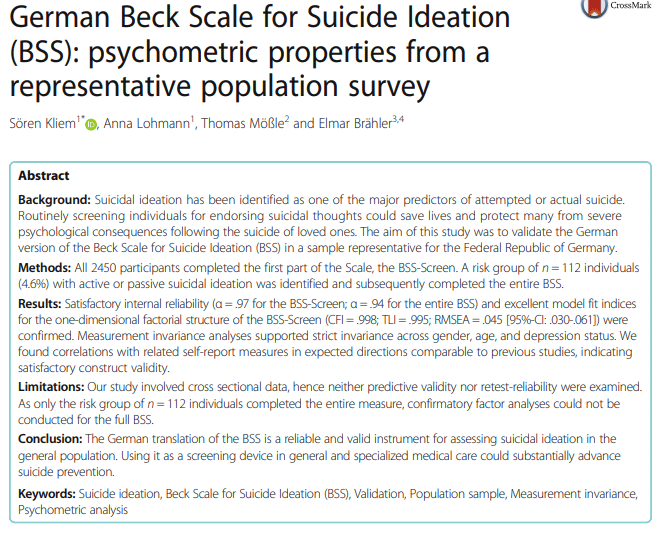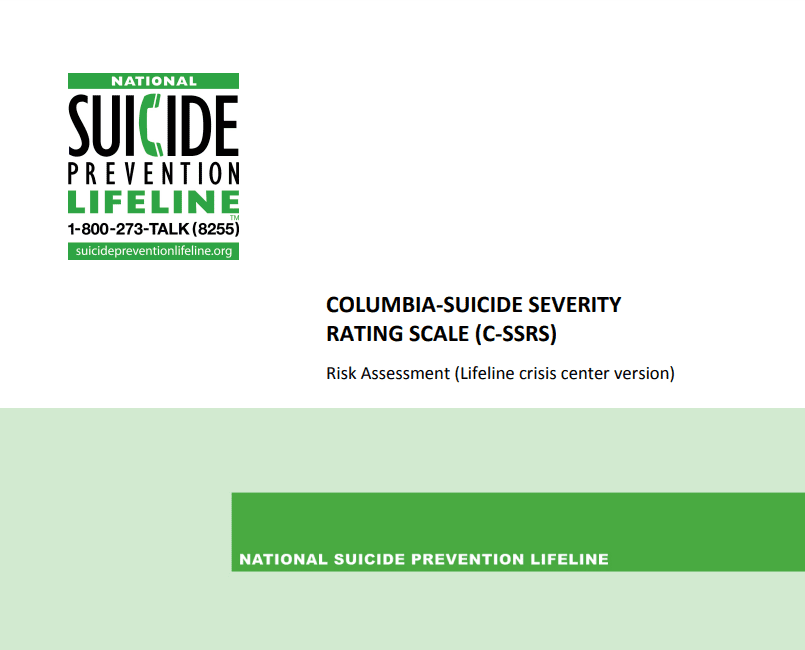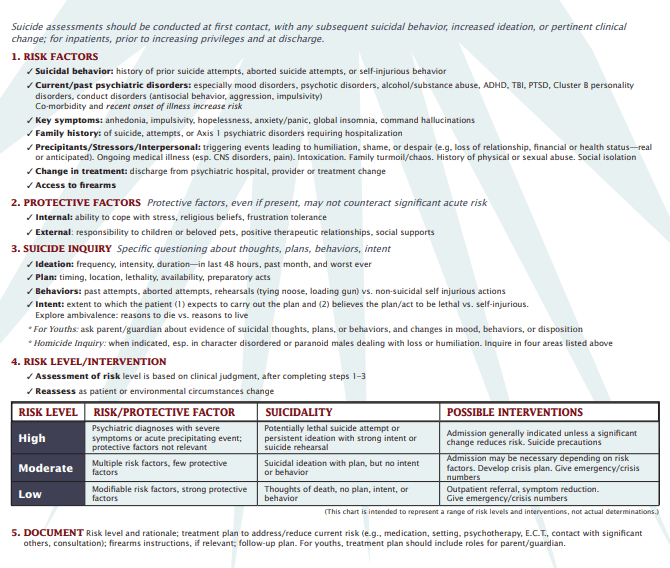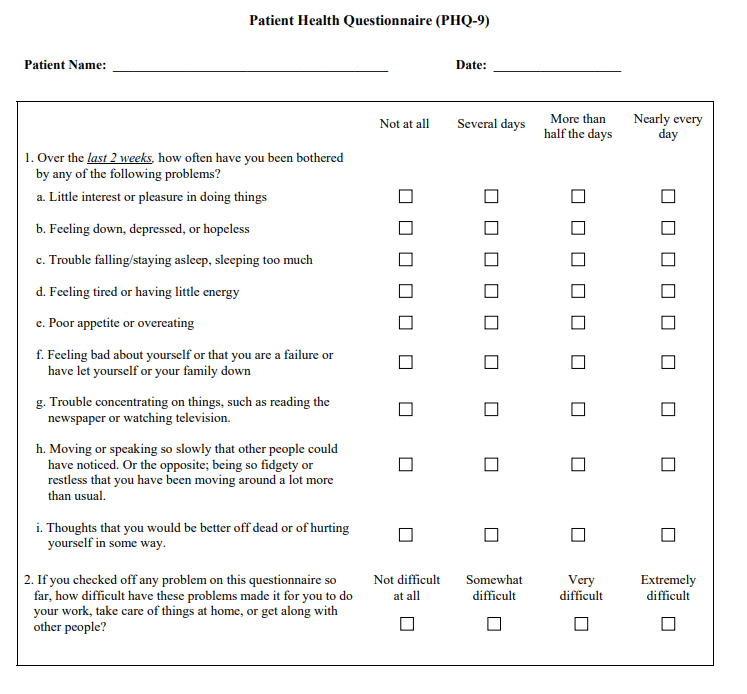Suicide Ideation Scale or Suicidal Ideation Scale
According to the National Survey on Drug Use and Health, 4.3% of U.S. adults ages 18 and older had thoughts about suicide, with the highest prevalence among adults ages 18 to 25. For people with mental health disorders, the rate is significantly higher. A suicidal ideation scale is a clinical tool used to assess a person’s risk of committing suicide. By helping healthcare providers recognize signs that someone is likely to self-injure, the scale aids in timely intervention and treatment. If you are having active suicidal thoughts, contact the National Suicide Prevention Lifeline at 1-800-273-8255. If you or a loved one are in immediate danger, call 911.

What Is the Suicide Ideation Scale or Suicidal Ideation Scale?
You may have heard suicidal ideation referred to as “suicidal thoughts.” Not everyone with suicidal ideation acts on it. But if you or a loved one has it, you should get help right away. Understanding the issues concerning suicide and mental health is an important way to participate in suicide prevention, help others in crisis, and change the conversation around suicide.
Suicidal ideation refers to the desire to commit suicide or contemplate suicide. However, there are two kinds of suicidal ideation: passive and active. Passive suicidal ideation occurs when you wish you were dead or that you could die, but you don’t actually have any plans to commit suicide.
Active suicidal ideation, on the other hand, is thinking about it and having the intent to commit suicide, including planning how to do it.
Suicidal thoughts are a symptom of major depression and bipolar disorder, but they can also occur in people with other mental illnesses or none at all.
What Are The Types Of Suicidal Ideation?
Suicidal ideation refers to someone wanting to take their own life or thinking about doing so. The affected may be so preoccupied with thoughts of death that it interferes with their day-to-day life. Suicidal ideation is a broad term that includes various thoughts and behaviors that are self-injurious, whether suicidal or not:
- Suicidal thoughts: Thoughts of killing oneself
- Suicidal threat: Thoughts of killing oneself that are verbalized to others
- Suicide attempt: Behavior that is intended to kill oneself but doesn’t result in death
- Nonsuicidal self-injury: Directly and intentionally hurting oneself without the intention of suicide
Suicidal Ideation Scale Or Suicide Ideation Scale
A suicidal ideation scale is a clinical tool used to assess a person’s risk of committing suicide. By helping healthcare providers recognize signs that someone is likely to self-injure, the scale aids in timely intervention and treatment.
Suicidal ideation scales include questions about a person’s thoughts, attitudes, and desire to commit suicide. Examples include:
Beck Scale for Suicide Ideation (BSSI)
Columbia-Suicide Severity Rating Scale (C-SSRS)
Suicide Assessment Five-Step Evaluation (SAFE-T)
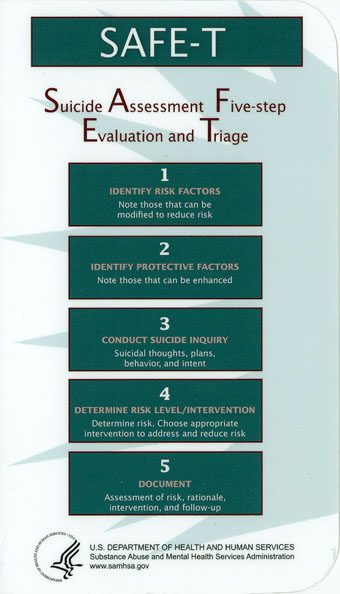
Patient Health Questionnaire-9 (PHQ9)
To screen for suicidal ideation, healthcare providers may use one or more of these scales in addition to performing a physical examination to look for signs of self-harm or underlying medical conditions. They will also take a detailed medical history that includes their sleeping pattern, appetite, and any medications they are on.
You might be also interested in:

Overland is the top-rated mental health, addiction, and codependency treatment center in Los Angeles, California. We provide IOP, PHP programs, in-person and virtual care (telehealth services), hybrid treatment plans.
An IOP or PHP program may help reduce the risk of suicide if you have suicidal thoughts but no crisis. Inpatient hospital care might recommend this if you or your loved one think about suicide often and if the thoughts last a long time or include a suicidal plan to die by suicide.
Contact Overland IOP today via phone, live chat, contact forms, or email! We work 24/7 and provide in-person, virtual care (telehealth services), and hybrid treatment plans. Our IOP and PHP programs offer morning, afternoon, or evening options. Start your treatment as soon as the same day!
Published: October 20, 2021

Published: February 14, 2026
Medication-Assisted Treatment (MAT): How It Works?
Summary: Medication-assisted treatment (MAT) is an evidence-based approach to addiction treatment that combines FDA-approved medications with behavioral therapy and counseling to treat substance use disorders — primarily opioid and alcohol addiction. MAT is endorsed by the Substance Abuse and Mental Health Services Administration (SAMHSA), the National Institute on Drug Abuse (NIDA), and the World Health […]
Read more
Published: February 06, 2026
Talk Therapy: Types, Benefits & How It Works in California
Summary: Talk therapy — also known as psychotherapy — is a structured, evidence-based treatment approach in which a trained mental health professional helps individuals identify, understand, and change the thoughts, emotions, and behaviors that contribute to mental health conditions and substance use disorders. It is the foundation of treatment for depression, anxiety, PTSD, personality disorders, […]
Read more
Published: January 27, 2026
What Is DPD? Understanding Dependent Personality Disorder
Most people don’t ask, “What is DPD or Dependent Personality Disorder?” They come in feeling drained, anxious, and stuck in relationships that feel restrictive yet hard to leave. Being alone feels unsettling. Decision-making feels paralyzing. Reassurance becomes a daily necessity rather than a comfort. At Overland IOP in Los Angeles, we often see Dependent Personality […]
Read more

